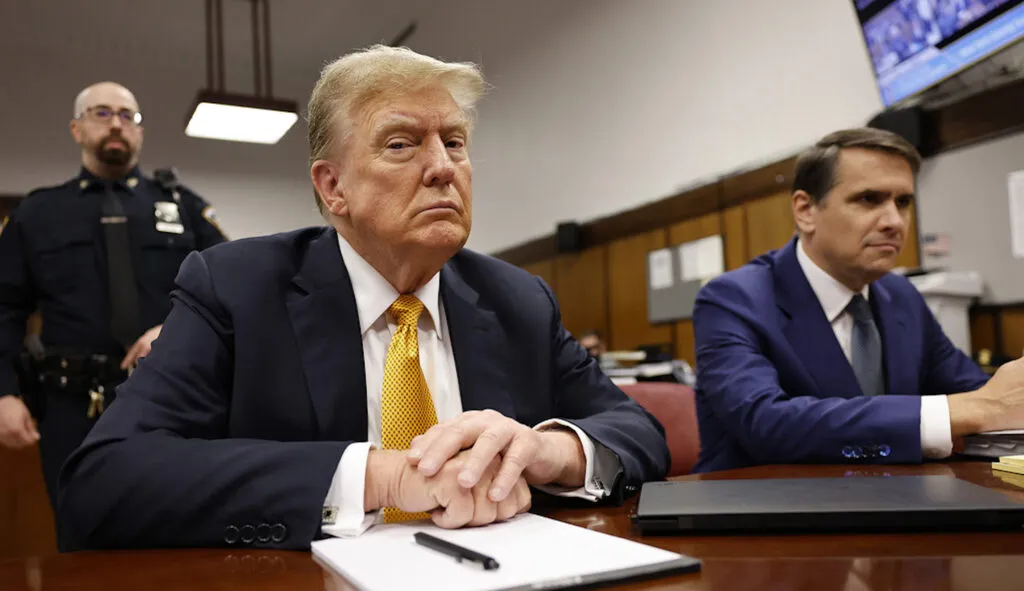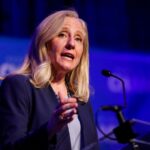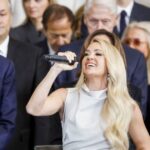
Former President Donald Trump plans to ask a court in Washington, D.C., to dismiss his election interference case on several grounds, and he argued in a late Friday night court filing that he would need months to do this.
Trump’s attorneys proposed a newly revised schedule for the case that stretches into mid-2025 and includes various proposed due dates that would occur all throughout the final weeks of the election and beyond.
The 10-page joint filing included an uncharacteristically passive perspective from special counsel Jack Smith that the court schedule begins “promptly,” but Smith gave no specific timeline and instead said he would leave that up to Judge Tanya Chutkan to decide.
Trump’s defense team and prosecutors will flesh out their scheduling positions in more detail during a hearing on Sept. 5, but Chutkan will have the final say in how to proceed.
The dispute over how to go about reviving the case came after it had been paused for months while the Supreme Court weighed Trump’s presidential immunity argument. The high court ruled largely in favor of Trump, deciding that presidents enjoy some immunity from criminal prosecution for acts they perform as part of their official job duties.
The decision led Smith to trim down his allegations against Trump in a superseding indictment this week in an attempt to comply with the justices’ order, while still ambitiously maintaining his original four felony charges against the former president.
In the joint filing, Trump’s attorneys and prosecutors disagreed over what steps should come next in the case while the trial remains indefinitely postponed.
Both parties, however, agreed that the Supreme Court‘s order meant that they must each make the case to Chutkan that Trump’s charges do or do not fall under the category of immunized conduct.

Digging into Trump’s charges and debating them in a public court setting will likely involve revisiting Trump’s most controversial moments in the wake of the 2020 election, when Trump refused to accept his race defeat, hundreds of his supporters riotously trespassed into restricted parts of the U.S. Capitol, and his then-lawyers failed to convince a single judge to entertain his claims of voter fraud.
Prosecutors for Smith said that deciding what is and is not immune conduct should happen first. Trump’s attorneys disagreed, saying that such an “invasive” process may not have to happen at all if Chutkan grants any of their dismissal requests. Trump’s attorneys argued that they should be able to make those requests before anything else happens in the case.
“The Court should take every reasonable step possible to resolve the case on legal grounds, before permitting an invasive public inquiry regarding President Trump’s official conduct while in office,” Trump’s attorneys wrote.
The former president’s attorneys indicated that they planned to take two months to raise fresh challenges to Smith’s appointment as special counsel after Trump’s Florida case was tossed out over the same argument and after conservative Justice Clarence Thomas said in a concurring opinion that Smith’s appointment raised “serious questions.”
Trump’s attorneys said they “may” move to have Trump’s charges dismissed solely because Smith kept in his superseding indictment mentions of Trump allegedly pressuring former Vice President Mike Pence not to certify the election results. This was “improper” for Smith to include based on the Supreme Court’s view of presidential immunity, Trump’s attorneys argued.
The attorneys also said that the Supreme Court’s ruling this summer in Fischer v. United States, in which the high court narrowed the scope of an obstruction charge that Trump also happens to be facing, meant that Trump’s attorneys had standing to attempt to dismiss his case on that front, as well.
Trump’s attorneys made clear that they had an array of new tools at their disposal in the wake of the Supreme Court’s rulings and that they planned to put up new legal fights at every opportunity and draw out the pre-trial process as long as possible, potentially stretching it into next year depending on whether Trump wins the election.
CLICK HERE TO READ MORE FROM THE WASHINGTON EXAMINER
“Fully considering, researching, briefing, and resolving each of these potential motions will take considerable time and resources, commensurate with their ‘unprecedented and momentous’ importance,” Trump’s attorneys wrote, adding, “Our proposed calendar accounts for this.”
Even if Chutkan sides with Smith and decides to first tackle the question of what actions in Smith’s indictment are immune from prosecution, Trump will then be able to appeal that decision, which could build many more months into an already protracted process.





